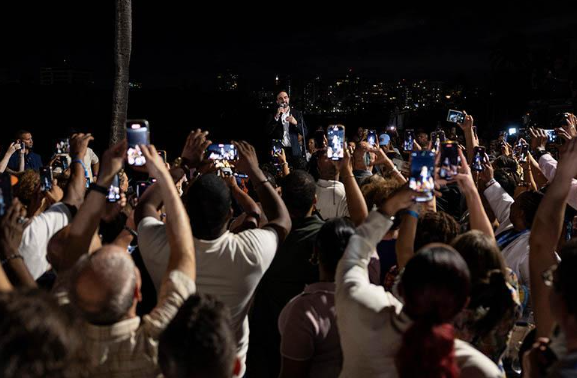
BY KAILA MACEIRA
November is Puerto Rican Heritage Month, and New York has long recognized Puerto Rico’s cultural, political, and historical ties with the city. So when Mayor-elect Zohran Mamdani traveled to Puerto Rico earlier this month and announced, “You cannot tell the story of New York City without telling the story of Puerto Rico,” Puerto Ricans did listen. His remarks circulated widely online at a time when the diaspora was already immersed in celebrating, commemorating, and reflecting on Puerto Rican history.
Although Mamdani’s visit occurred during a season filled with historical anniversaries –the 1511 Taíno rebellion, the 1868 Grito de Lares, and the attack on the US House of Representatives led by Lolita Lebrón – that was not why he traveled to the island. He was there for the annual SOMOS conference, where New York politicians meet with Puerto Rican officials, community groups, and advocacy organizations. Still, the timing shaped how his comments were interpreted, especially by Puerto Ricans wary of symbolic gestures that do not lead to lasting political support.
John W. Acevedo, a 27-year-old filmmaker from Ponce who moved to New York during the COVID-19 pandemic, said Mamdani’s message felt familiar but carried weight coming from a mayor-elect. Acevedo, who responded in Spanish, said that the island’s culture had historically been suppressed through anti-nationalist laws, such as the former criminalization of the Puerto Rican flag, creating what he described as “fear of repercussions.” “As a Puerto Rican, it feels like people hear us,” Acevedo said. “It’s nice to hear a mayor wants to help my main culture.”
Still, Acevedo does not believe that anyone who has not lived on the island can fully understand the depth of its struggles. He pointed to experiences in Ponce, where residents lived without reliable electricity for years after Hurricane María and where federal relief arrived slowly or in limited amounts. “The hardship we’ve been through… those are struggles that I feel you would only truly understand when you live in it,” he said.
Living in New York reshaped Acevedo’s view of Puerto Rico’s political status. He explained that while he once believed statehood was necessary for the island’s survival, he now fears it would erase the cultural identity that defines Puerto Rican life. “If we become a state, we will lose what made us truly Boricuas,” he said. “Our culture, our voices, our lifestyle would all be gone or down to minimal.”
For at least one Puerto Rican who grew up in New York, Mamdani’s trip resonated differently. Marisol Rivera, 22, a second-generation Puerto Rican from Brooklyn, said that hearing a mayor-elect openly acknowledge the island’s importance “validated and showed face,” especially during a month when cultural pride is foregrounded. Rivera said she hoped this year’s statements would lead to more consistent political support rather than holiday messaging that fades. “We’ve learned to wait and see what happens after the cameras leave,” she said.
Rivera also questioned how much mainland politicians can realistically do for Puerto Rico. “They praise Puerto Rico in statements, but they do not send resources,” she said, adding that many visit during SOMOS but rarely return once the conference ends. She and Acevedo both noted that while New York City officials can fund programs for the diaspora and raise awareness about Puerto Rican issues. It is important to note: they cannot control federal disaster aid, economic policy, or the island’s political status, all of which fall under congressional and presidential authority.
Rivera said her parents taught her about historical cycles of displacement, beginning with the economic restructuring of Operation Bootstrap, and the role Puerto Ricans in New York played in movements like the Young Lords. The Young Lords were a radical Puerto Rican organization founded in the late 1960s that fought for community control, anti-poverty programs, and self-determination in New York and Chicago. Riviera said those lessons shaped her expectations: “Just because we weren’t born on the island doesn’t mean we don’t feel what happens there.”
Both Rivera and Acevedo were clear that meaningful change for the island will always depend on federal action, not municipal leaders. Yet, both expressed hopes for how New York City’s mayor could support Puerto Ricans living in the city. Acevedo said the priority should be “more respect for the community,” including attention to housing issues affecting Puerto Ricans displaced by economic crises. Riversa said she wants elected officials to “show up when it matters,” not only during holidays or photo opportunities.
What Mamdani’s visit ultimately means, they argued, will depend on whether his statements evolve into consistent engagement. As Rivera put it: “If you believe in this, it’s not just in November.”
